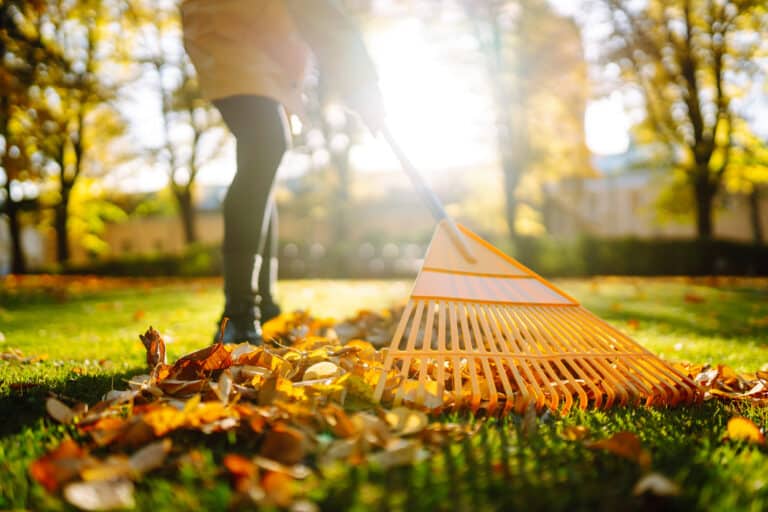With falling leaves and winter preparations, autumn is a busy time for lawn care and people don’t often think about the impact the work could have on their hearing. Yard work is a necessary task, and the loud equipment often used, like leaf blowers, lawnmowers or chainsaws, poses risks to your hearing health. Here’s how to safely manage yard care while protecting your hearing this fall.
Risks to Your Hearing During Yard Work

Autumn yard maintenance often involves using power tools and machines that can produce high levels of noise. Hearing loss can begin to occur with sounds at 70 dB, while exposure to sounds at 85 dB and above damages hearing. The longer you’re exposed, the faster hearing loss can occur, and hearing loss can occur suddenly after exposure to very loud sounds.
Here are some common risks when it comes to lawn work:
- Lawnmowers and leaf blowers: These machines can reach noise levels between 85-90 dB or higher, which can be damaging with prolonged exposure. Repeated use without protection can further worsen existing hearing loss.
- Chainsaws: Chainsaws, often used to trim trees or remove dead branches, can exceed 110 dB. Exposure to noise at this level can cause immediate damage to your hearing.
- General yard equipment: Even smaller tools like hedge trimmers and weed whackers can produce noise that contributes to hearing damage if not handled properly.
How to Protect Your Hearing
It’s important to consider how to protect your hearing while performing autumn yard work. The following strategies can help ensure you get the job done safely while minimizing the risk to your hearing:
- Wear ear protection: Whether you use foam earplugs, earmuffs or custom-fit hearing protection, it’s helpful to wear hearing protection while doing yard work. For those with hearing aids, over-ear protection can be used to reduce noise while keeping your devices in place.
- Use quieter tools: If possible, opt for electric-powered tools rather than gas-powered ones from places like Roberts Hardware. Electric tools are generally quieter and still effective for yard maintenance. Battery-powered leaf blowers or lawnmowers can reduce noise significantly compared to traditional models.
- Take breaks: If you’re using loud equipment for extended periods, take regular breaks. Giving your ears a rest will minimize prolonged exposure to harmful noise levels and reduce strain on your hearing.
- Check your hearing aids: For those with hearing aids, make sure they are set to the appropriate volume for outdoor environments. Many hearing aids have noise-reduction features that can help when working with yard tools, but always check that your settings are right for protecting your hearing. Your hearing specialist can advise you.
This fall, follow these tips to maintain your yard without putting your hearing health at risk. To learn more about your hearing health, hearing aids or to schedule a hearing evaluation for you or a loved one, contact SH Audiology today.
